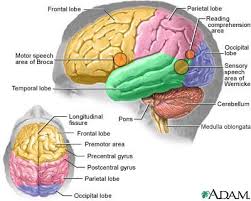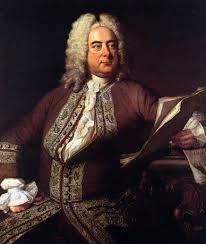 |
“A lot of people say you need drive to realize your talent but the truth is, your talent is your drive.” by Stevie Wonder
Aug 18, 2009
Can a soprano's voice really shatter glass?
Jul 30, 2009
The secret to age-restoring, fat-fighting, cancer-preventing sleep is...routine
Strangely, the moment we are out of the big cities camping, TV, DVD player and computer are taken away, we go back to a more natural body rhythm, going to rest as it gets dark and raising with the sun. We have a pre-historic body that still responds to prehistoric body-clock cues.
There is nothing worse than being constantly tired, grumpy and getting sick gradually because our body is lacking that repairing, healing sleep. There are some very simple rules you need to follow to get back on track. The secret to perfect, age-restoring, fat-fighting, cancer-preventing sleep is.....routine. It's really not a sexy revelation...
So here is how it works. Rise as early as you can. Slide straight into sneaker. Exercise straight from home- none of this driving to the gym business: it invites procrastination. A simple 30 min walk is perfect. Use your favourite music collection of energizing music or personal development on your Ipod if that is your preference instead of being with your ow thoughts and bird song. Then meditate. By exercising first your mind is settled and ready for meditation. It sets you up for a great day! Then shower, take a teaspoon of apple cedar vinegar (to wake up your digestion and for general well being) and have a Herbalife nutrition shake or eat porridge. According to Eastern traditions, a hot, dense breakfast is the best way to ground energy; cold foods, such as muesli, require heat to digest, which saps energy from your system at that hour.
At night, it's simple. Eat a light dinner by 7pm. Avoid foods like avocado, aged cheese and soy sauce at night. Turn computer off by 8pm. Be in bed by 10pm. If you don't, your body will ache because the body repair occurs between 10pm and 2am. Get 7 to 8 hours sleep in a well aired, cool room. Don't overheat your bedroom. Sleep debt causes cortisol to rise, which shuts down metabolism so you start putting on weight.
Repeat this routine for a week or two and watch your skin glow, your phone manner become more attentive and sleep strike you like a blow to the head with a fat doona. After the improvement shows, you won't want to go back to your old habits because you will feel and look so much better!
If you are an owl like me, adjustment can take much longer and can be a tough transition but it is worth the experiment.
I wish you a good night sleep, a healthier body, glowing, young looking skin and a big smile on your face!
Please let me know of your results!
(This writing is based on an article by Sarah Wilson in A better life section of the Sunday Age July 2009. Sarah attended a sleep retreat at Gwinganna in the Gold Coast hinterland.)
Jul 25, 2009
So you think you can hear?
Some musicians are blessed or many would say cursed by Perfect Pitch or Absolute Pitch. Perfect or Absolute Pitch is your ability to recognize EXACT tones and chords - BY EAR. More precisely, the ability to identify the pitch of a musical tone without an external reference pitch. To be considered an absolute pitch possessor, an individual must have the ability to identify pitches accurately and instantaneously.
Here's a quick lesson:
WITHOUT Perfect Pitch: You do not know what tones you hear -- it's like hearing in "black and white":

WITH Perfect Pitch: You know the EXACT TONES you hear -- it's like hearing in color:

This does not mean that you associate visual colors to tones to learn Perfect Pitch. Instead, you learn to hear the SOUND colors of the tones.
Think of it this way: Your eye sees VISUAL colors. Likewise, your ear can learn to hear PITCH colors.
Your eye sees colors of LIGHT. Likewise, your ear can learn to hear colors of SOUND.Once you tune in to these PITCH COLORS, you'll naturally name any tone or chord -- BY EAR -- just like you can name colors by eye.
Ernst Terhard on Absolute Pitch: Although Absolute Pitch in humans ordinarily is dependent on labeling of tones according to musical-notation conventions, it is not merely the "pitch class" (i.e. the musical note name) that can be identified. Rather it is pitch itself. A tone's pitch is identified with significantly better accuracy than the plus/minus 3 percent frequency tolerance preset by the semitone interval that forms the smallest unit in the Western music notation. An AP possessor can tell if an acoustically played tone is sharp or flat relative to a standard intonation internally available to the AP possessor. It appears that the standard intonations of different AP possessors may be different, dependent on the level of intonation which they have been exposed to in early childhood. This becomes evident when AP possessors report to feel uneasy or even confused when they have to listen to, or to play, music on a level of tuning that differs from their internal standard.
Even in "genuine" AP possessors the skill appears to be somewhat fragile - which fits into the above view. Gerald Moore, the famous English piano accompanist, described in his book "Am I too Loud?" that as a young man he had Absolute Pitch and gradually lost it later. This is most remarkable, as the loss happend in a period of Moore's life in which he still was fully engaged as an accompanist. He pointed out that he regarded the loss of Absolute Pitch as a relief, i.e., with regard to a problem that he frequently had to solve, namely, transposition of pieces on the piano. In view of the above findings one may be inclined to suspect that Moore may unconsciously have himself "trained off" his Absolute Pitch faculty, as it had made transposition harder to him.
So it appears that, in a sense, the ability of Absolute Pitch in principle is implanted in every human, but is easily lost in infancy and/or childhood when it is not maintained and developed by training in naming musical tones. It may be not too far-fetched to speculate that, without such active maintenance, the natural Absolute Pitch faculty is inadvertently "trained off" in infancy, i.e., in the course of the vast acoustic/auditory learning challenges that an infant must accomplish, in particular in acquisition of its mother tongue.
Whatever, the faculty of AP cannot be regarded as an outstanding, sophisticated auditory achievement, because it was found in a number of non-human animals. For instance, the ability to recognize absolute pitch was found in a number of birds, and in a frog (Elepfandt, A. [1986]. Wave frequency recognition and absolute pitch for water waves in the clawed frog Xenopus laevis. The ability of adult Xenopus laevis to identify water wave frequencies was demonstrated by go/no-go conditioning. The acuity of frequency recognition is of absolute-pitch quality.). This indicates that AP is an elementary, rather than sophisticated, feature of the auditory system of vertebrates.
Another type of evidence in favour of the above view was provided by our own experiments on recognition of musical key with students of music as subjects. The advantage of experiments on musical key recognition - as opposed to recognition of single tones - is that they can be carried out both with AP possessors and with non-AP possessors. Roughly speaking, the result was that only a small percentage of musically trained non-AP possessors are totally unable to recognize musical key. About 30% of the non-AP possessors were able to tell whether or not musical samples were played plus/minus 1 semitone "off key".
The general view is this: To become a "genuine" AP possessor you must early in life become aware that you already are an AP possessor, and this kind of awareness, of course, may emerge from the experience that pitches can be identified, though at first imperfectly, to a certain higher-than-chance extent. When that level of performance and awareness is more or less spontaneously attained in early childhood, the ability may become "genuine" by practice.
Read more on the website of The University of California Genetics of Absolute Pitch Study and fill in the survey and take the test if you are interested!
A bibliography of absolute pitch that contains more than 350 papers http://www.absolutepitchstudy.com/
Jul 20, 2009
EAT THAT FROG
Jul 18, 2009
Playing a musical instrument makes you smarter!
Many studies have been conducted on the effects of music to the brain. Scientists say that children who are exposed to music, or those who play an instrument, do better in school than those who don't. Recent research suggests exposure to music may benefit a child's reading age, IQ and the development of certain parts of the brain. Adults can benefit from learning to play an instrument too because it helps the mind to be alert and active eventually helping to sharpen the memory.
Jul 17, 2009
Georg Friedrich Handel, composer
Jul 15, 2009
Lord Yehudi Menuhin world famous violinist and yoga

Lord Yehudi Menuhin (1916-1999) was an extremely influential figure in British society. He made this island his home for a significant portion of his life, partially due to the influence of his British-born wife, the ballerina Diane Gould (1912-2003). Menuhin was given an honorary knighthood in 1965; citizenship in 1985, and a Lordship in 1993. These honours were not only for his outstanding musical ability, but also for his philanthropic and humanitarian interests.
 Menuhin's Stradivarius
Menuhin's StradivariusA child protégée, the New York-born violinist had an intuitive genius in expression on his instrument. But in middle age, strains and tensions in his body began to interrupt the consistency of his playing and he struggled to bring his intuitive understanding into consciousness. Menuhin searched to discover how to bring release to his bodily tension.
In 1951, as Menuhin describes it, a “life changing encounter” took place in the waiting room of an osteopath during a concert tour in New Zealand. Trying to fill the time while his sister Hephzibah had a treatment, Menuhin found a small book on Hatha Yoga. He writes:
I had stumbled across a key to unlock old enigmas, to make me aware of my capacity, encourage the physical ease missing from my upbringing, point the way to further comprehension of violin playing, and perhaps – if I persevered – stand me on my head in long-delayed fulfilment of childhood ambition.
Although he had never heard of yoga before this book, he gleaned enough from borrowing the book for the duration of his week-long tour of New Zealand to develop the rudiments of a regular asana practice.
Shortly after independence, Indian Prime Minister Jaraharlal Nehru gave an open invitation to world's best musicians to tour the newly independent country. In response, Yehudi Menuhin arranged tour India for two months, turning any profit from his concerts over to the Famine Fund for Madras. In 1952, the Menuhins stayed as personal guests of Prime Minster Nehru who shared Yehudi Menuhin’s interest in yoga. Famously, Nehru made a friendly challenge to Menuhin about his practice and the two were found in headstand as the butler came in to announce dinner. When this story reached the press, “gurus began to queue up wherever [Menuhin] went, each recommended by some prominent patron.” One of these prominent patrons fetched Iyengar from his home in Poona to visit Menuhin in Bombay.
After warning Iyengar that he only had five minutes in his busy schedule, Iyengar guided Menuhin into a deep relaxation and awoke not five minutes, but an hour later. At the time Menuhin was suffering from insomnia and this was perhaps the best gift possible. Upon awaking, Menuhin asked Iyengar to demonstrate his art and then enthusiastically requested Iyengar to teach him. During that tour of India he met Ravi Shankar, sitar virtuoso, and eventually persuaded him to perform in the west. Ravi's popularity had significant consequences for both music and vegetarianism in the following decades.

In 1954, Iyengar spent more than six weeks in Gstaad, Switzerland where Menuhin was performing as Menuhin's personal yoga instructor; this year also included a brief visit to London. This began fifteen years of regular interaction between Iyengar and Menuhin (see photo on the right), Iyengar travelling to Europe to teach Menuhin most summers between 1961-1984 as well as teaching Menuhin whenever he toured India. During the 1980s Menuhin made jazz recordings with Stephane Grappelli and of Eastern music with the great sitarist Ravi Shankar (see picture of Shankar).
Menuhin's interests outside music were broad. He was known as an environmentalist and practitioner of yoga. He was introduced to yoga in the 1950s and studied with B.K.S. Iyengar, a noted guru. Menuhin's daily regimen included 15 to 20 minutes of standing on his head. He also used yoga to relax before concerts. Menuhin advocated a vegetarian diet and warned of the dangers of eating white rice, white bread, and refined sugar.
Renowned, American born violinist and conductor, Yehudi Menuhin was a vegetarian and committed supporter of many social and environmental causes, with a great interest in Yoga and eastern religion. He was an anti-pollution activist and vegetarian advocate.
The following extract is by James Henry Cook, quoted by his daughter Kathleen Keleny in her book: The First Century of Health Foods
"Kathleen had music lessons from the age of 8 to 15 and then from 18 (when she typed for a composer in exchange for piano and singing lessons). As we lived near Birmingham she was able to attend most of the big Symphony concerts conducted by Adrian Boult in Birmingham Town Hall. She had free entrance because she was a programme seller. She heard Paderewski, Horowitz and Yehudi Menuhin, a Vegetarian who said that his violin teacher was his Yoga teacher because he taught him how to relax. Much later when Kathleen was President of the Bath Vegetarian Society in her fifties, Yehudi Menuhin played at one of the Bath Festival events. He agreed to meet three Committee members after the concert and told Kathleen how very important his Vegetarian diet was to him and the work he did."
Yehudi Menuhin's BBC documentary (55mins)
. . . Mr. Menuhin describes himself as ''self-indulgent'' about certain foods. He can eat an entire honeycomb at four breakfasts. ''I collect honey the way some people collect stamps,'' Mr. Menuhin said. He said he is particularly fond of Indian food because it is ''so stimulating and so delicious, the vegetables with all the spices and the dairy products, the flat bread, rice and the masses of fruit.'' He loves pasta, especially with pesto and white truffles. Mr. Menuhin also enjoys fine wine."
Featured Post
Bartok, the Concerto and his Leukemia
I am reading a fascinating book by Hungarian-born Canadian author, speaker, and retired physician with a special interest in childhood deve...

Fibonacci
-
HOW 8 GLASSES A DAY KEEPS THE FAT AWAY Incredible as it may seem, water is quite possibly the single most important catalyst in losi...
-
I am reading a fascinating book by Hungarian-born Canadian author, speaker, and retired physician with a special interest in childhood deve...
-
This powerful oil creates energetic flow and emotional catharsis. Stagnant energies are brought into motion through the fluid energy of ...




